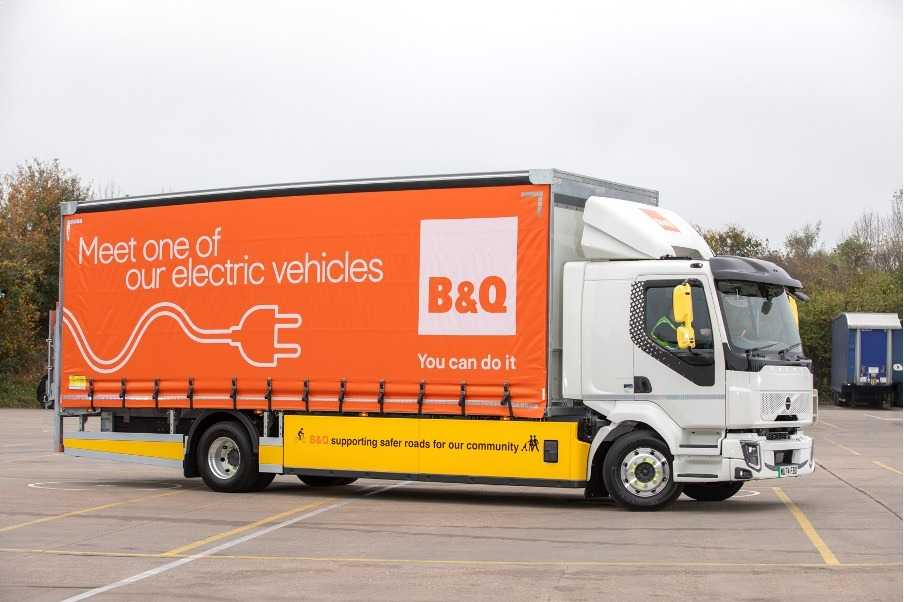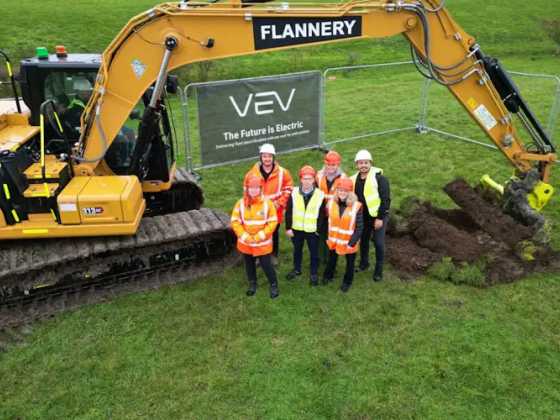B&Q and GXO on track to meet 2040 zero-emissions target

Logistics provider GXO and B&Q have reported they are making strong progress toward their shared goal of achieving net-zero carbon emissions across B&Q’s logistics operations by 2040.
Since the partnership began in 2015, GXO has managed B&Q’s retail transport network, including national and regional distribution centres, Store to Home final mile services, returns processing, and a flagship seasonal warehouse. B&Q has a strong online presence and marketplace, with over 700,000 products available for home delivery or click and collect.
In 2022, GXO and B&Q launched the B&Q Sustainability Glidepath, a comprehensive roadmap to decarbonise the logistics fleet. Combining performance improvements, accurate emissions reporting, and strategic initiatives, the companies reduced their emissions forecast by 40% in 2024, placing them ahead of schedule on their journey to net zero.
“Achieving zero-emissions in logistics transport is a significant challenge - one that can only be met through a combination of strategies,” said Gavin Williams, Managing Director, GXO UK & Ireland. “Our partnership with B&Q exemplifies this, showcasing how a thoughtful blend of available technologies and a shared commitment to decarbonisation can drive real progress. B&Q’s approach stands out as a model for the industry, proving that innovation, collaboration, and sustainability can go hand in hand to create a more efficient and environmentally conscious fleet.”
Darren Hall, Director of Logistics at B&Q said: “Decarbonisation of our fleet and use of up to date and available technologies is a vital step in our transition to alternative fuels, allowing us to give customers more choice in sustainable delivery options and reducing our impact on the environment. It’s great to work alongside GXO to help us to drive our ambitions forward and reach our 2040 net zero goals."
A cornerstone of the decarbonisation strategy is the transition to alternative fuels. Since 2019, B&Q has deployed 105 Liquified Natural Gas (LNG) vehicles – now the second-largest LNG fleet in the UK – reducing carbon emissions by 16,000 tonnes. In December 2024, the companies completed the conversion of all remaining vehicles and 80 refrigerated trailers to Hydrotreated Vegetable Oil (HVO), which cuts CO₂ emissions by up to 90% compared to diesel.
GXO and B&Q have also invested in electric vehicles (EVs), with five electric vans and two electric HGVs already in operation. Two more electric HGVs will be added in 2025, with plans to introduce 55 additional EVs over the next five years. The current EV fleet is projected to save 250 tonnes of CO₂ equivalent annually.
Looking ahead, B&Q is piloting GXO’s proprietary AI-powered transport optimisation platform. This technology analyses millions of route variations to identify the most efficient schedules, with early results indicating potential savings of 240,000 kilometres and 150 tonnes of CO₂ annually. Full implementation is planned for 2025.
As part of its path to net-zero, GXO employs an activity-based carbon accounting methodology, using DEFRA conversion factors to calculate emissions from fuel usage, energy consumption, and mileage. This data is submitted monthly to Kingfisher and independently audited annually.



